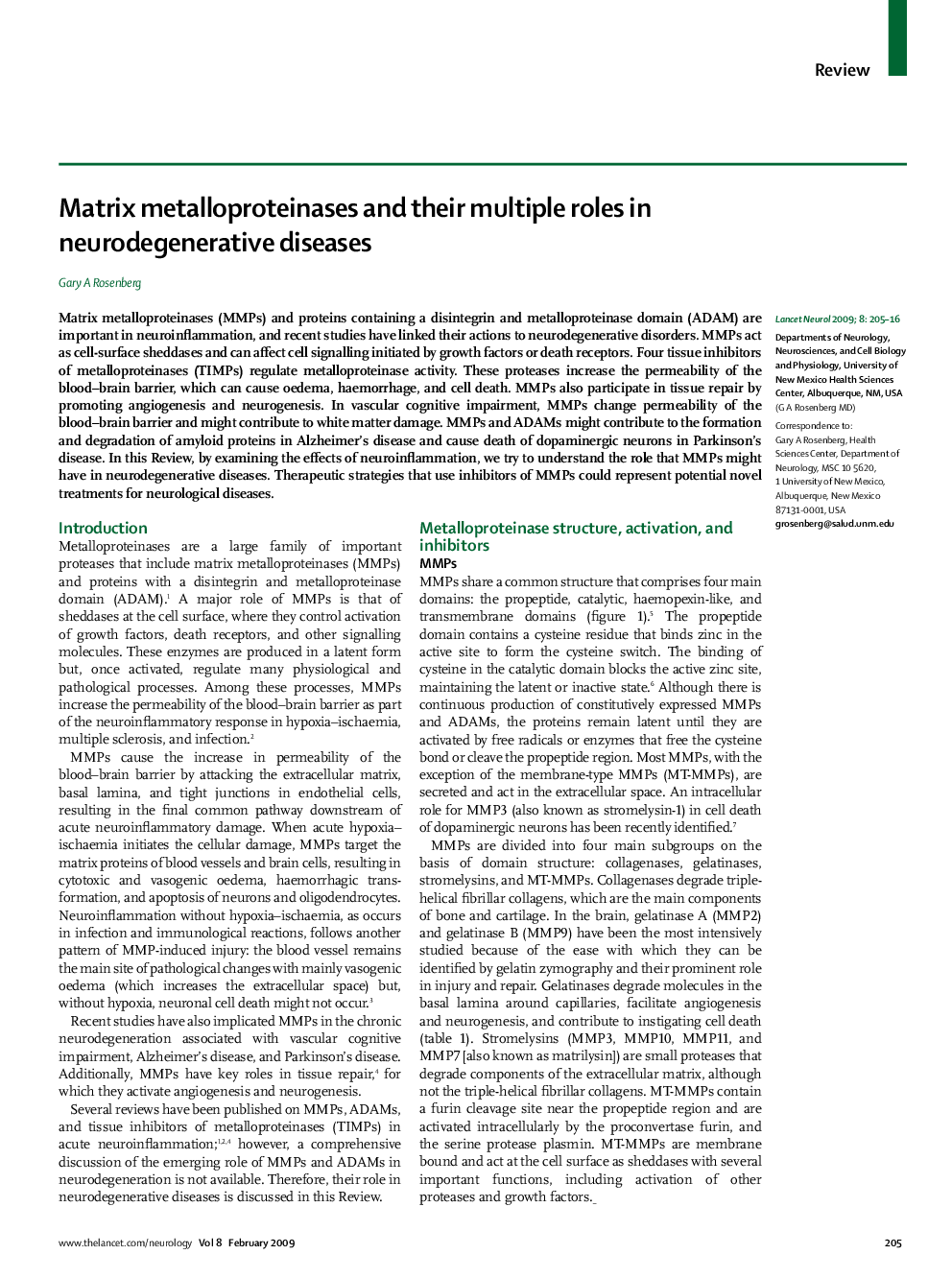| Article ID | Journal | Published Year | Pages | File Type |
|---|---|---|---|---|
| 3067444 | The Lancet Neurology | 2009 | 12 Pages |
SummaryMatrix metalloproteinases (MMPs) and proteins containing a disintegrin and metalloproteinase domain (ADAM) are important in neuroinflammation, and recent studies have linked their actions to neurodegenerative disorders. MMPs act as cell-surface sheddases and can affect cell signalling initiated by growth factors or death receptors. Four tissue inhibitors of metalloproteinases (TIMPs) regulate metalloproteinase activity. These proteases increase the permeability of the blood–brain barrier, which can cause oedema, haemorrhage, and cell death. MMPs also participate in tissue repair by promoting angiogenesis and neurogenesis. In vascular cognitive impairment, MMPs change permeability of the blood–brain barrier and might contribute to white matter damage. MMPs and ADAMs might contribute to the formation and degradation of amyloid proteins in Alzheimer's disease and cause death of dopaminergic neurons in Parkinson's disease. In this Review, by examining the effects of neuroinflammation, we try to understand the role that MMPs might have in neurodegenerative diseases. Therapeutic strategies that use inhibitors of MMPs could represent potential novel treatments for neurological diseases.
